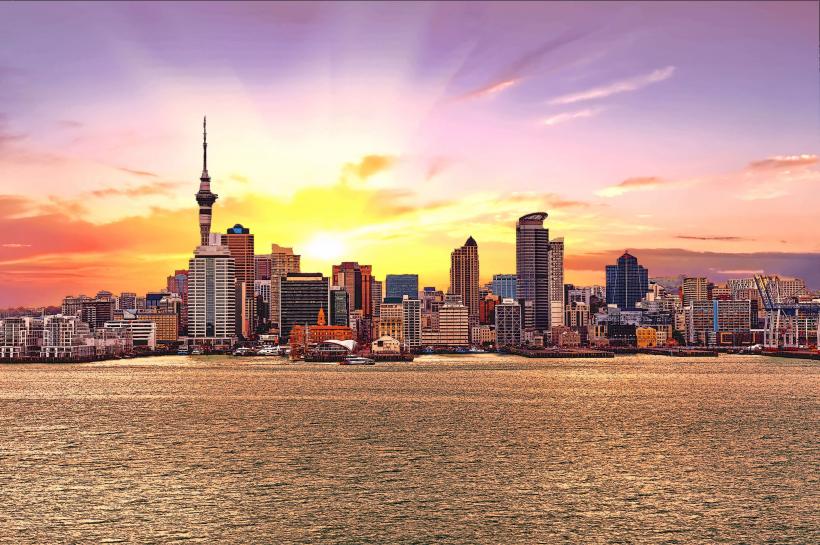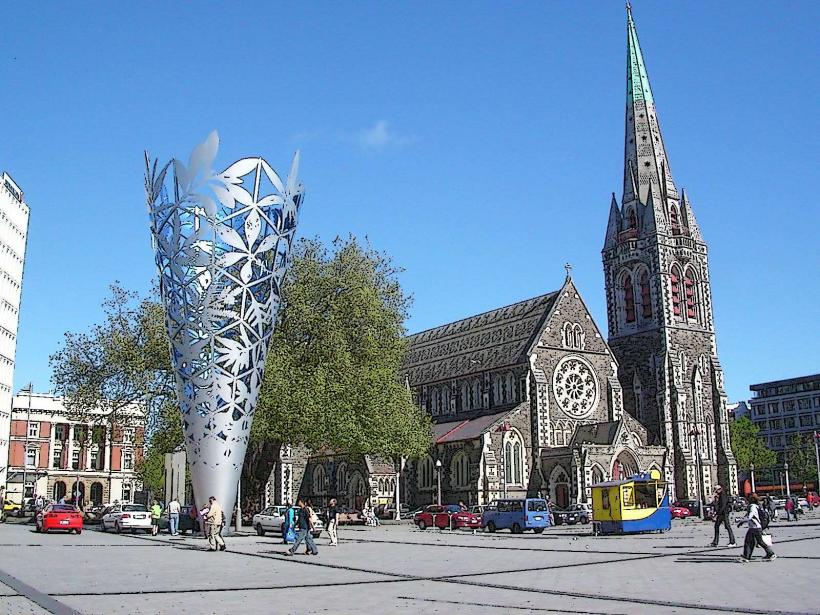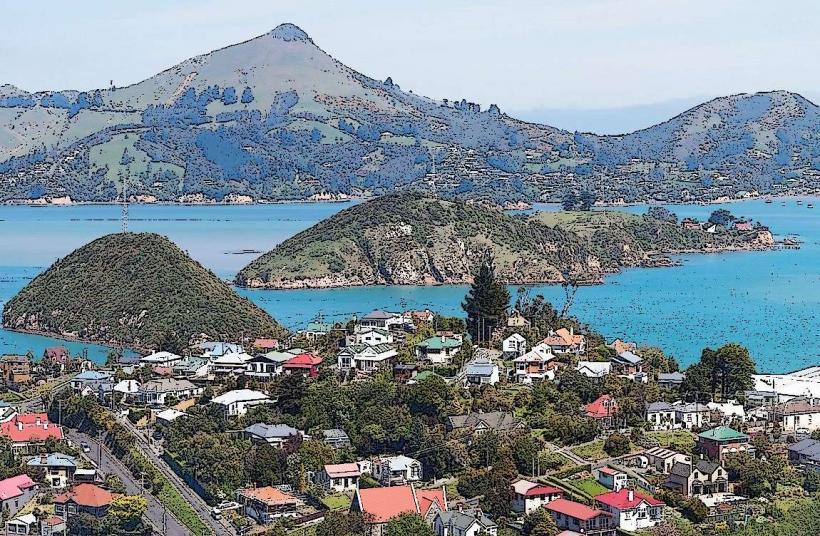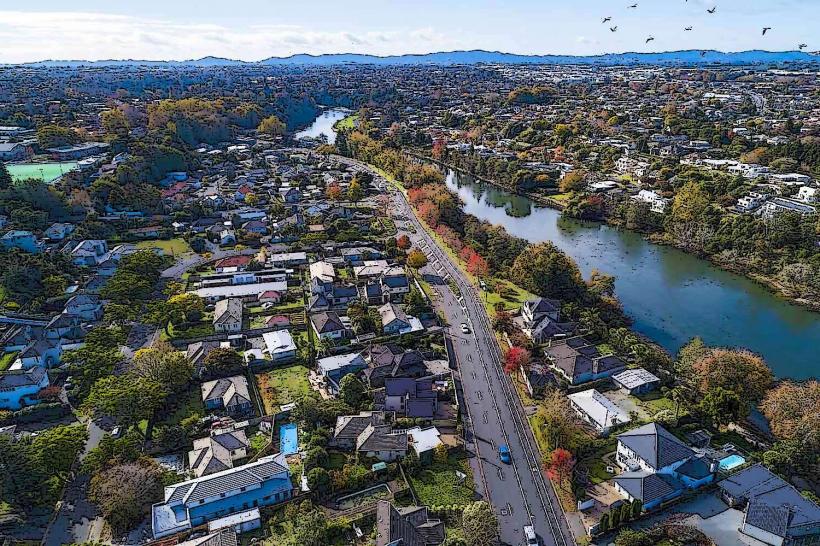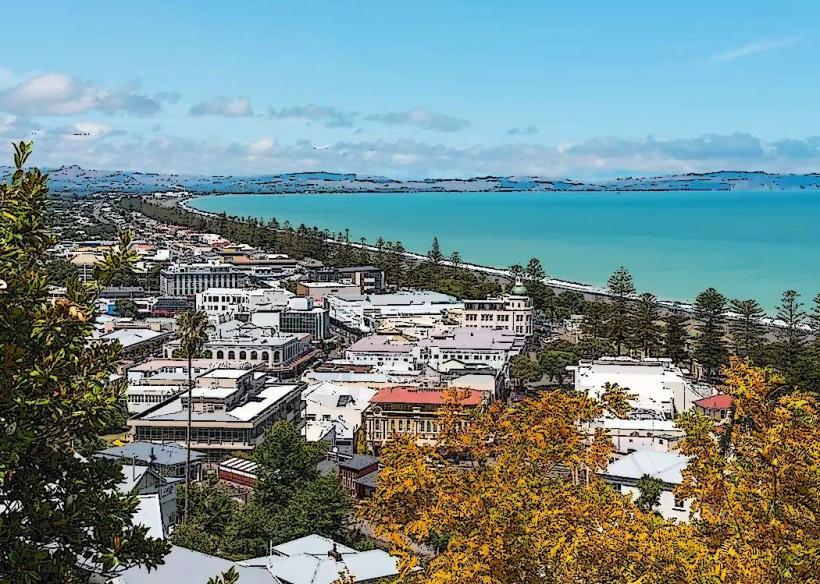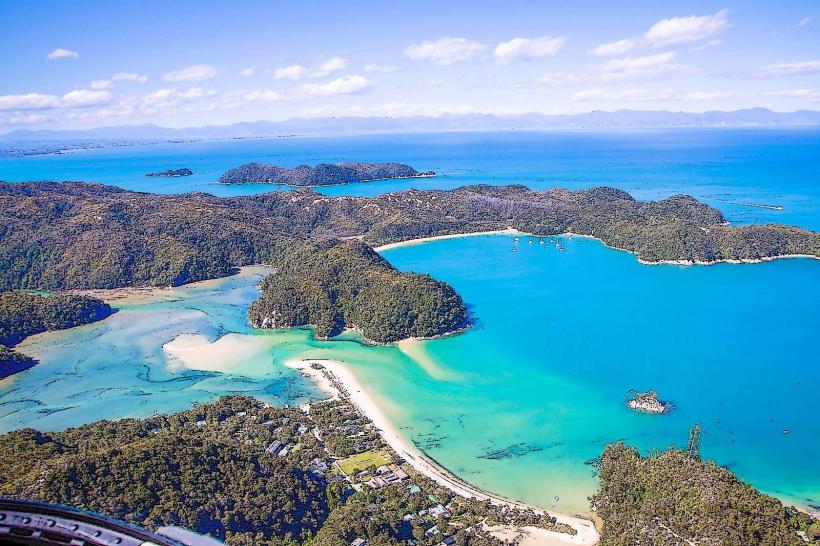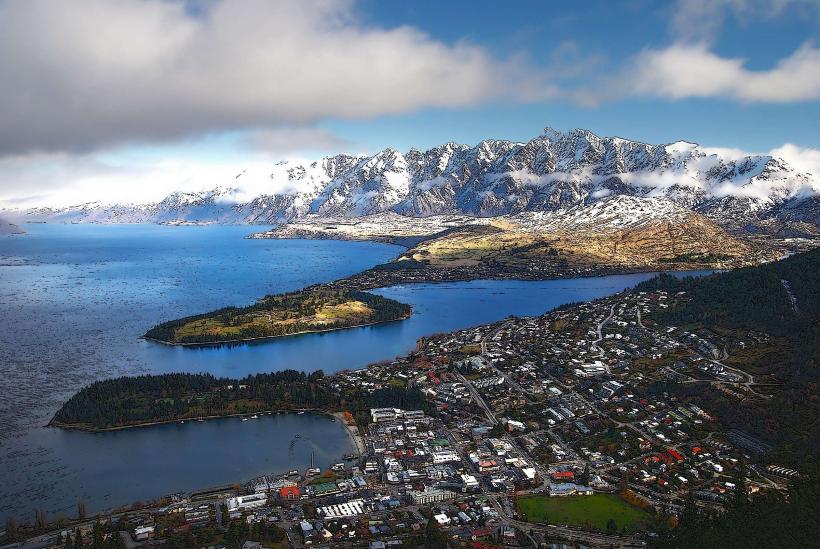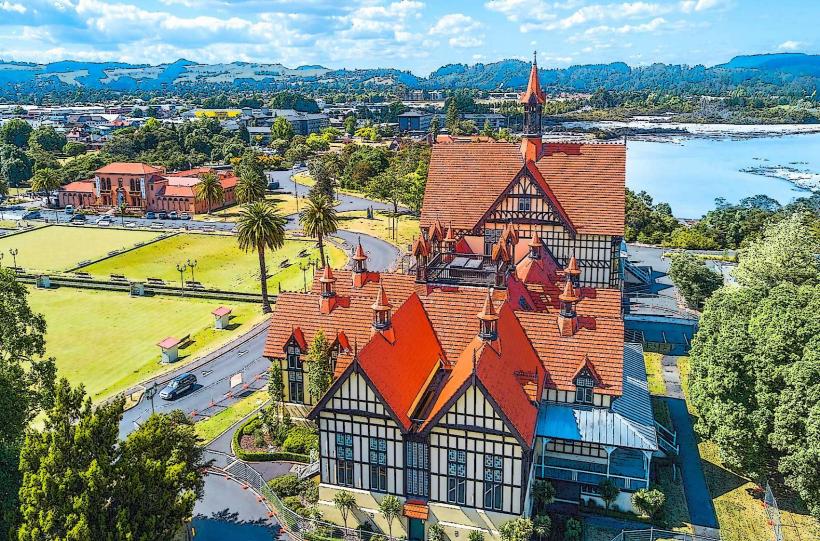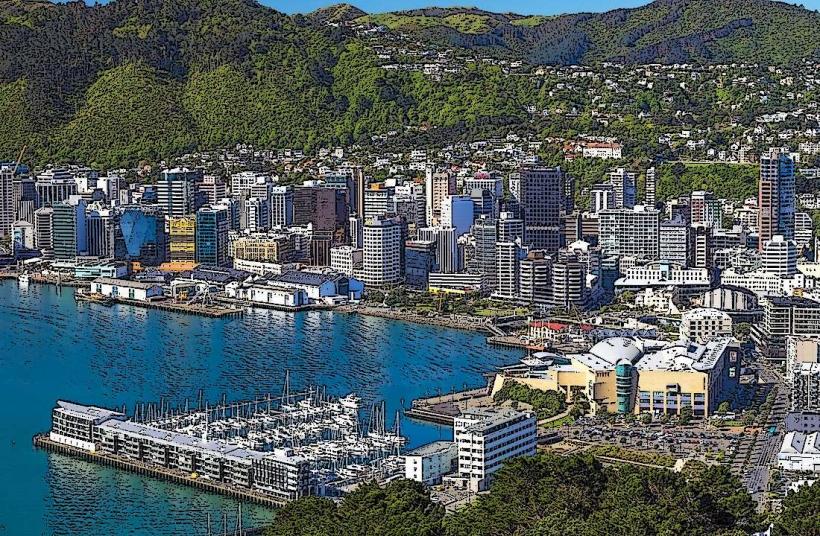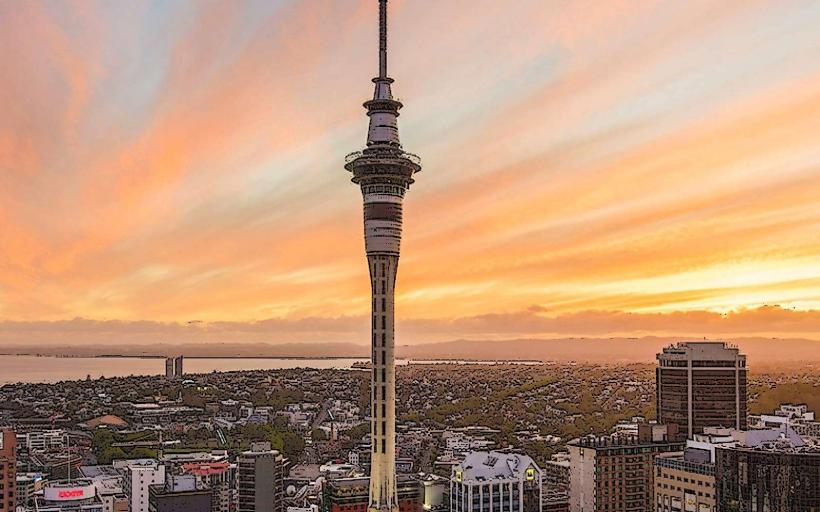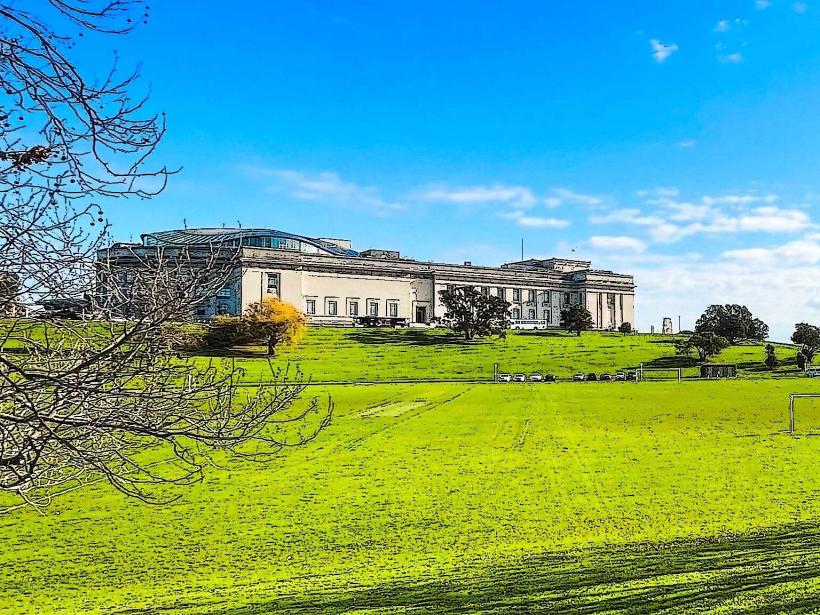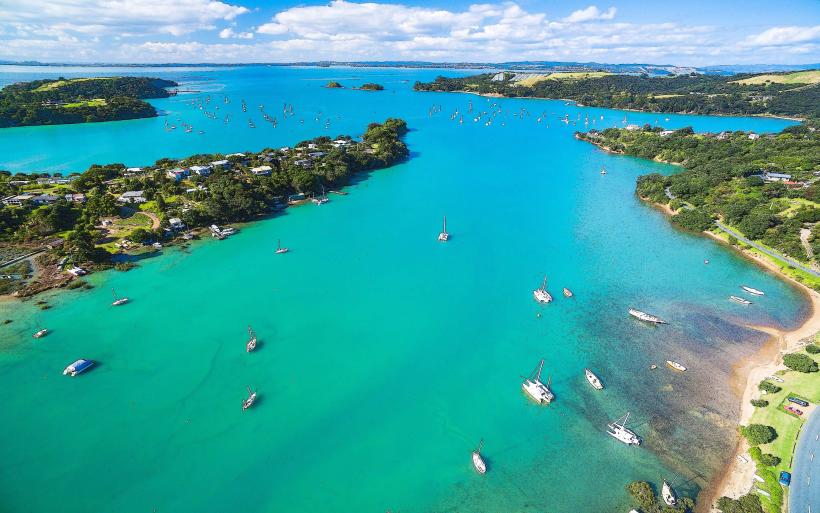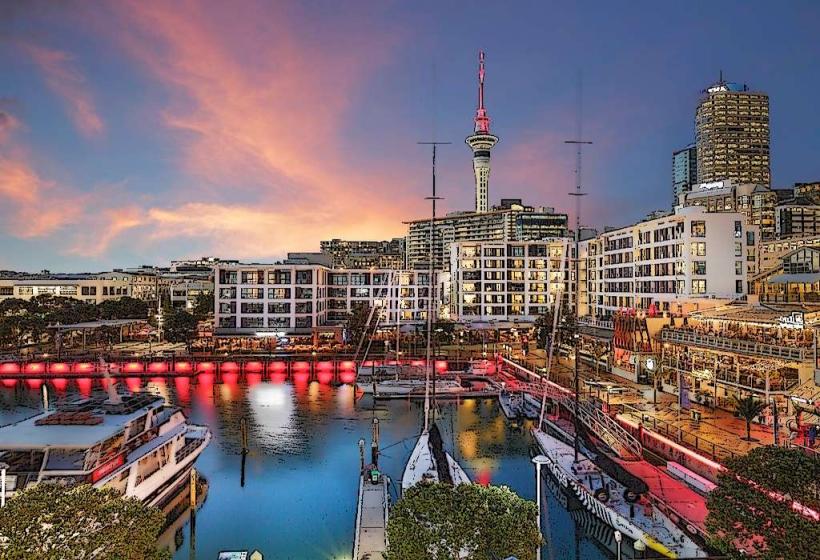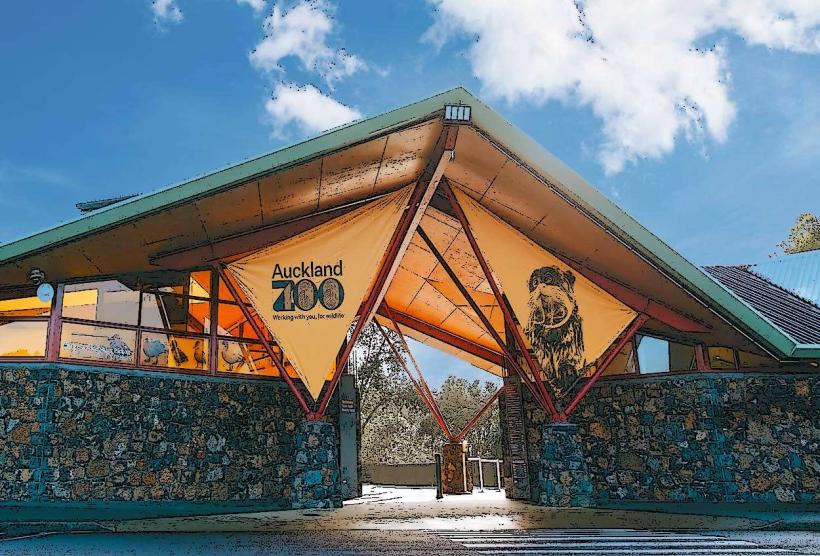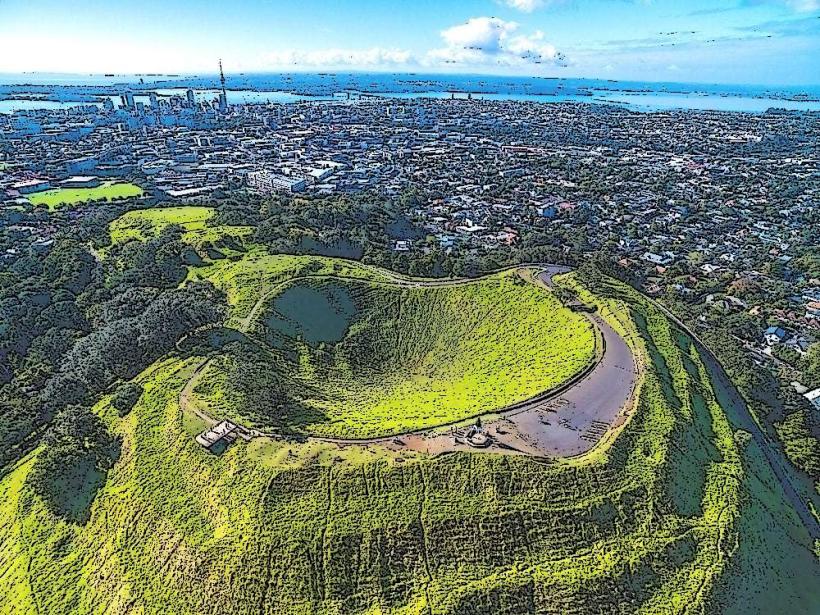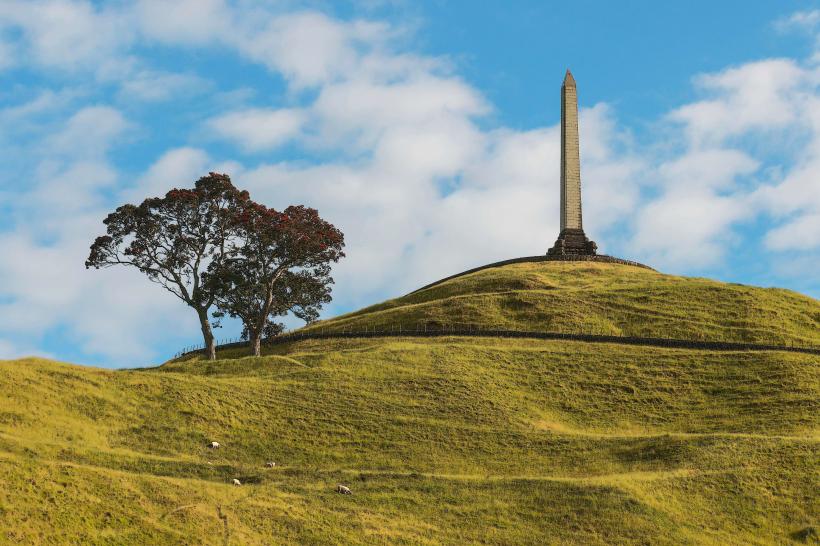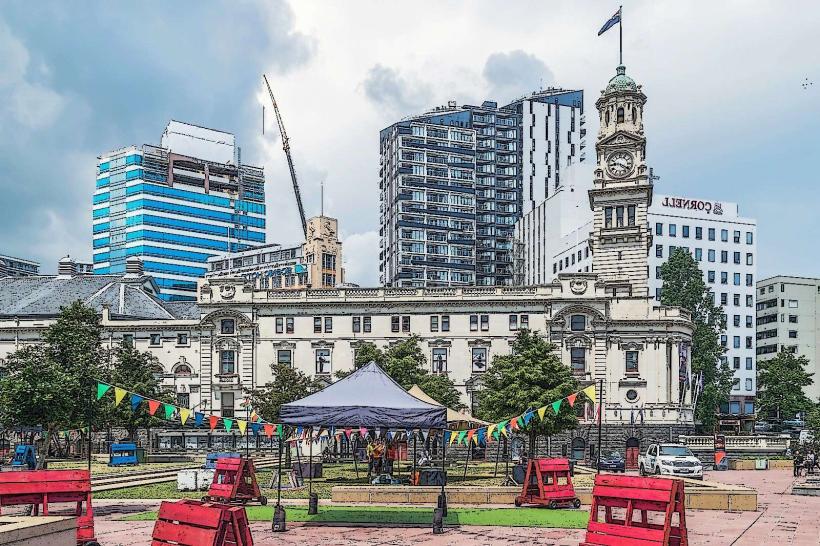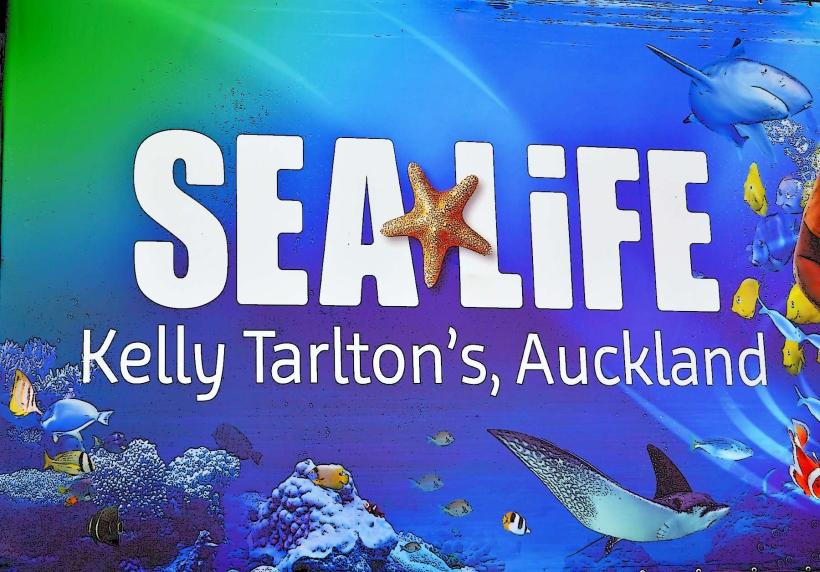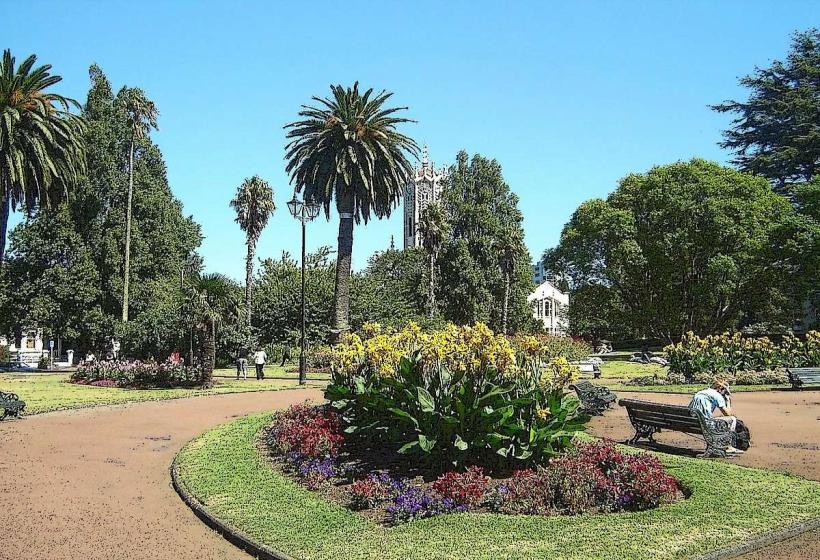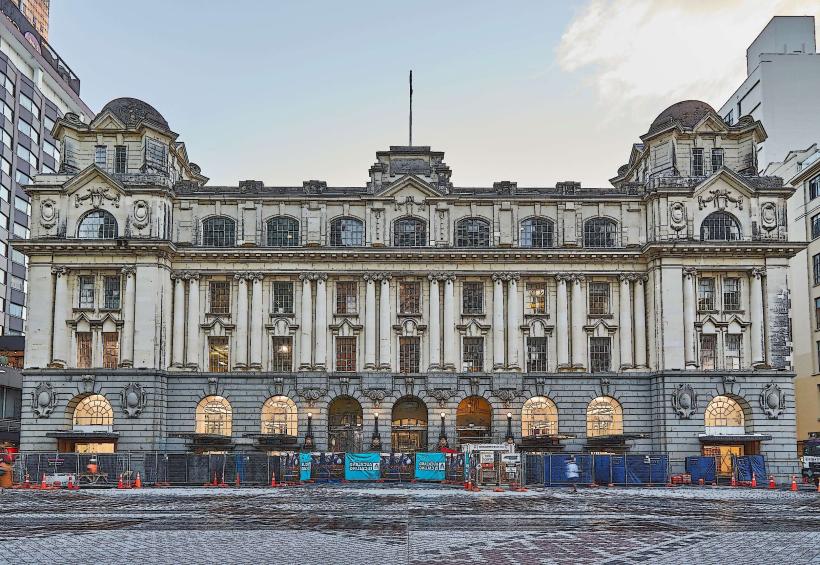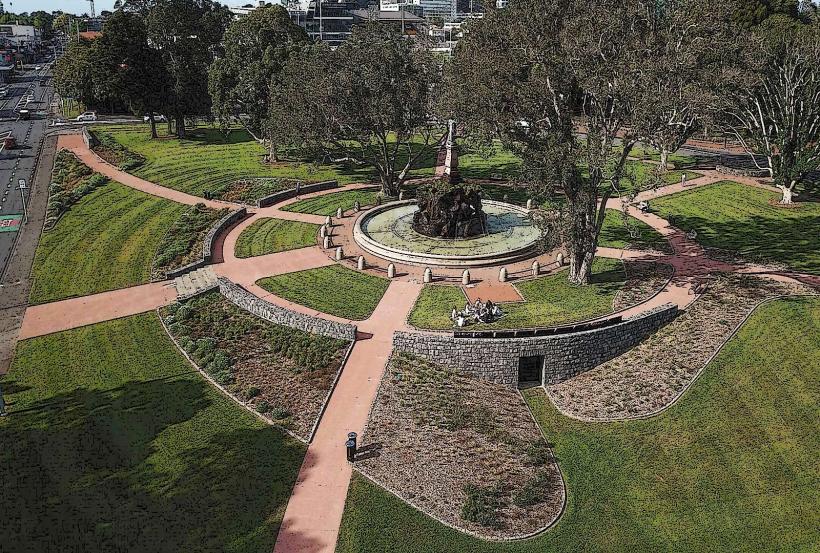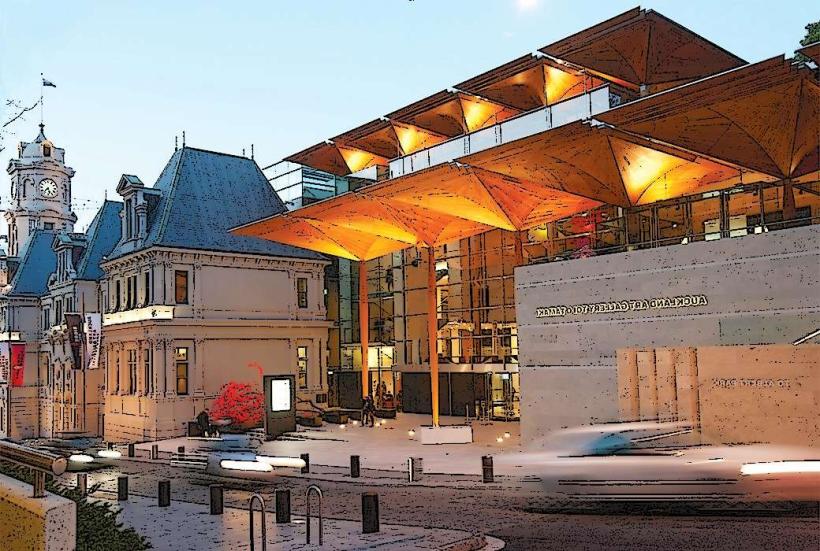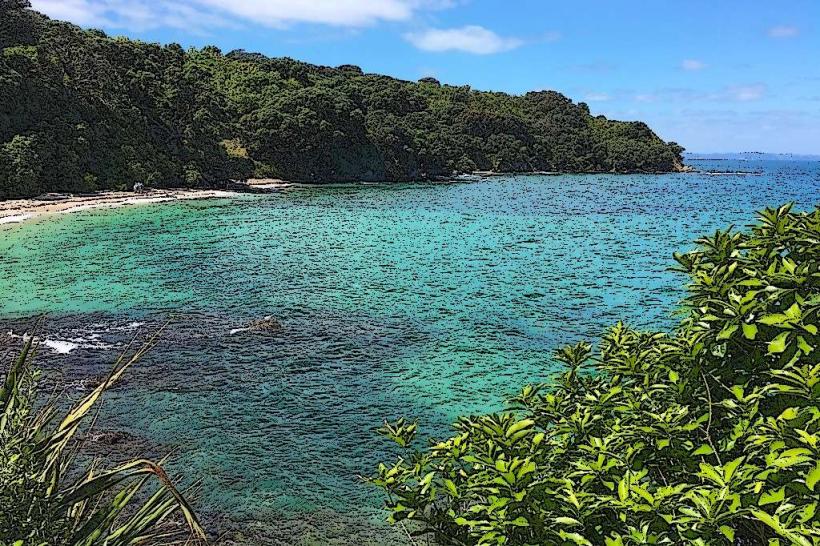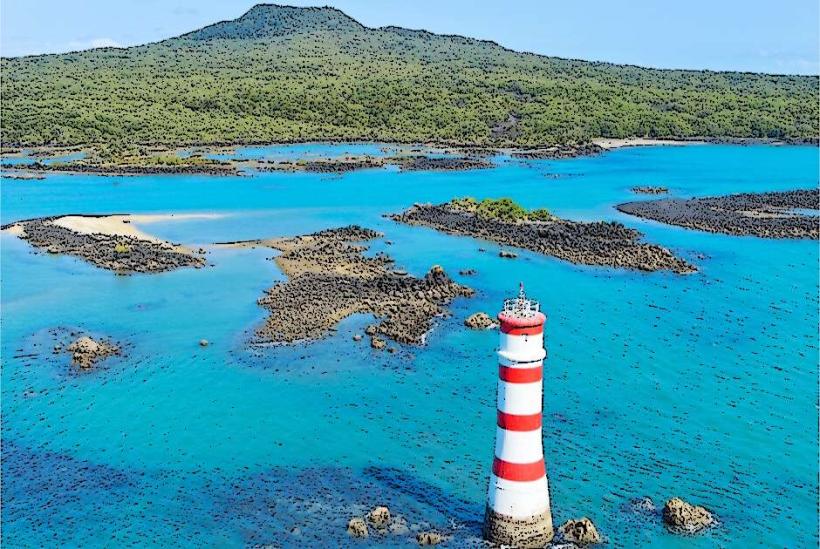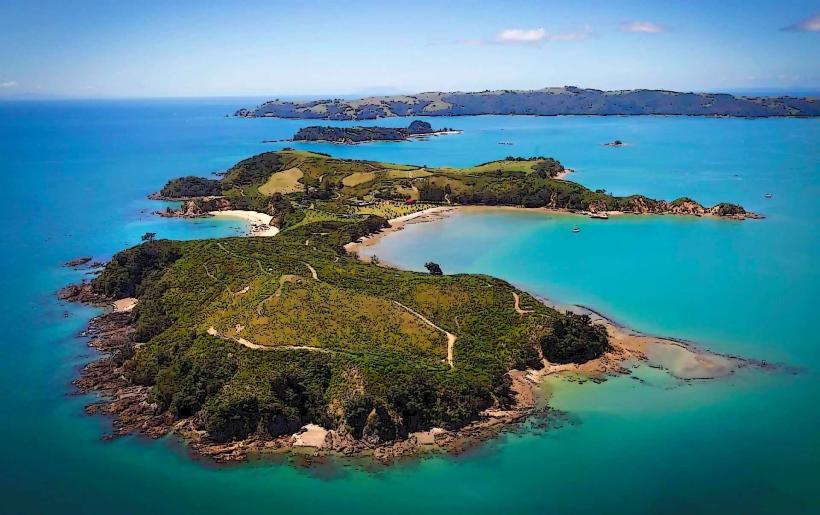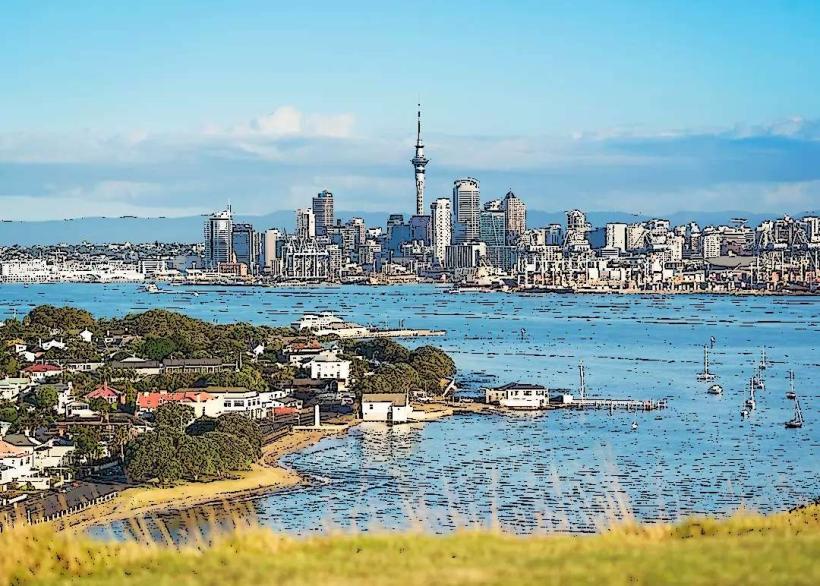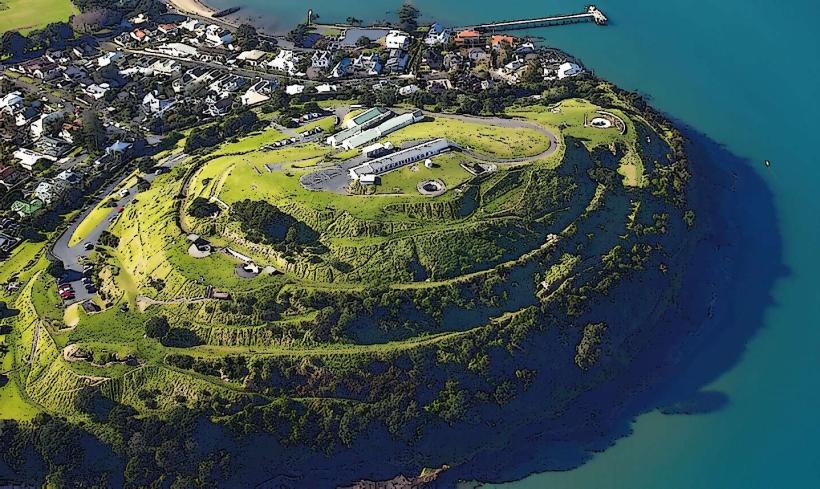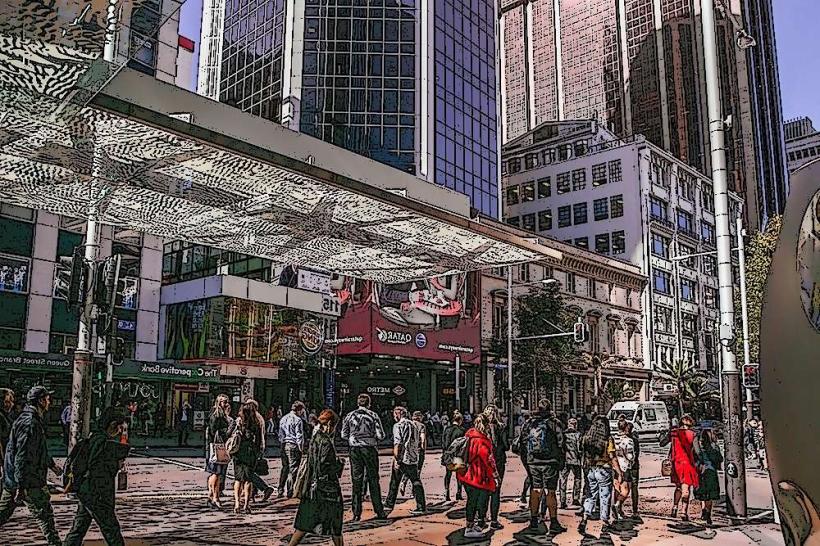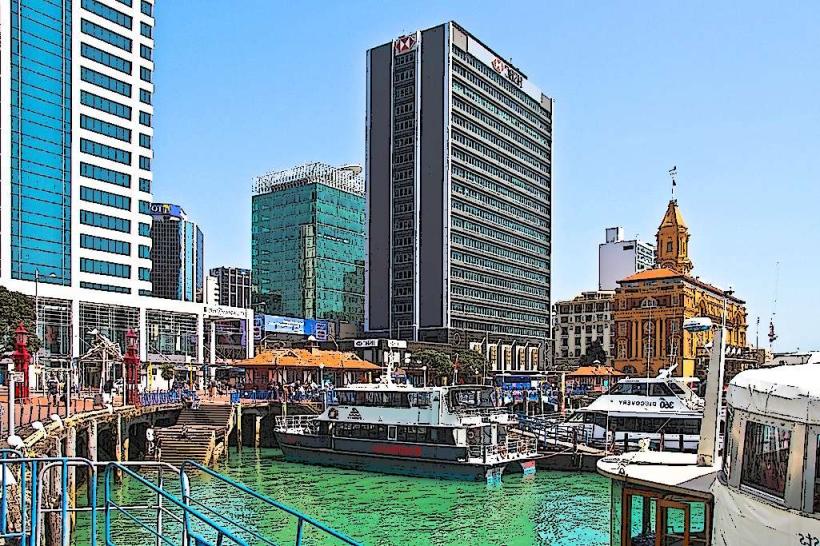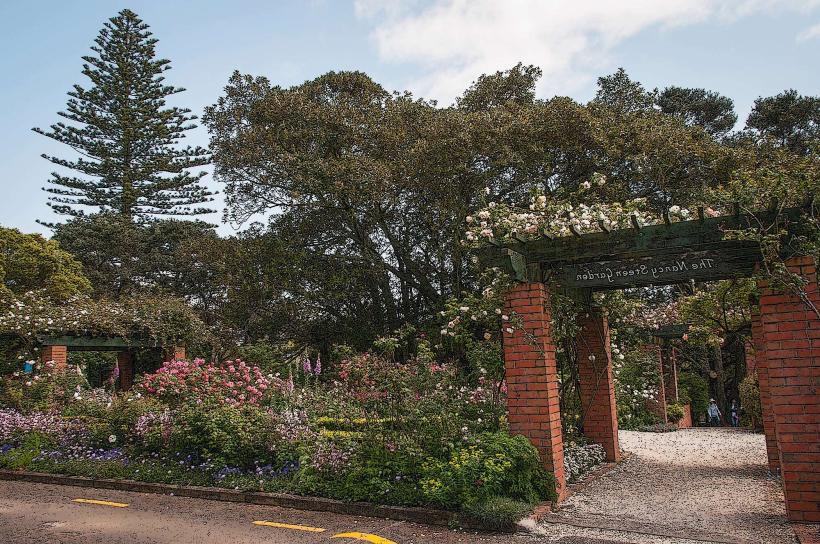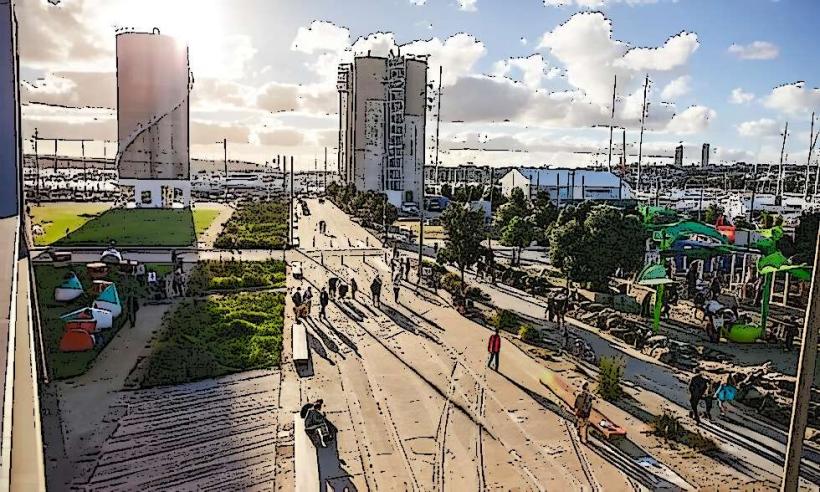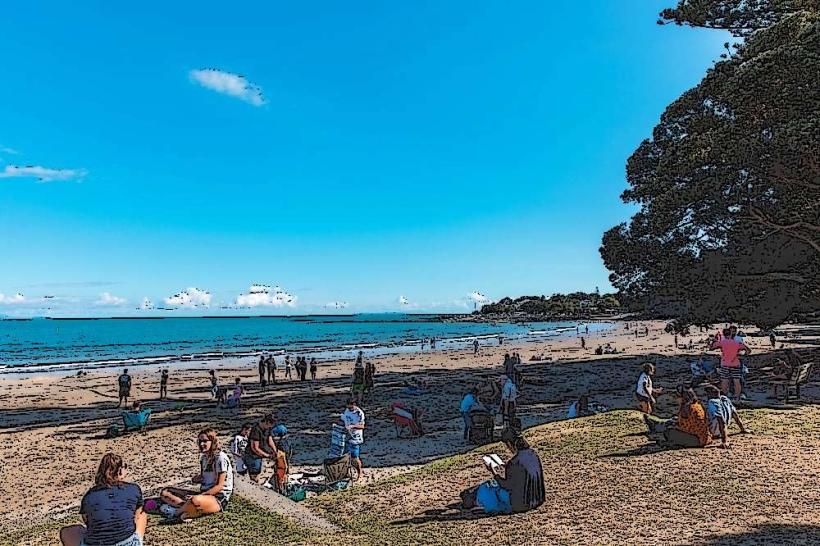Information
Country: New ZealandContinent: Australia
New Zealand is an island country located in the southwestern Pacific Ocean, renowned for its diverse landscapes, vibrant culture, and rich history. It is made up of two main islands, the North Island and the South Island, as well as over 700 smaller islands. New Zealand is famous for its natural beauty, outdoor activities, and as a popular tourist destination.
Geography
- Location: New Zealand is located around 2,000 kilometers (1,200 miles) southeast of Australia, and it lies to the south of the Pacific Islands. The country consists of two main islands, the North Island and the South Island, as well as numerous smaller islands.
- Terrain and Landscape: New Zealand is famous for its diverse geography, which includes mountains, beaches, forests, lakes, and rolling plains. The South Island is home to the Southern Alps, a mountain range that includes Mount Cook, the highest peak in the country at 3,724 meters (12,218 feet). The North Island features active volcanic regions, hot springs, and lush forests.
- Rivers and Lakes: New Zealand has numerous lakes, with Lake Taupo (North Island) being the largest, and Lake Wakatipu (South Island) known for its scenic beauty. The country also has several major rivers, such as the Waikato River, which is the longest in the country.
History
- Māori Arrival: The first human settlers of New Zealand were the Māori people, who arrived from eastern Polynesia around 1250 to 1300 CE. They developed a unique culture and way of life, with distinct art, language, and traditions. The Māori people called the country Aotearoa, meaning "Land of the Long White Cloud."
- European Discovery: New Zealand was first spotted by Europeans in 1642 when Abel Tasman, a Dutch explorer, arrived on the western coast. However, it was the British explorer James Cook, who mapped much of the coastline in 1769 and later claimed the country for Britain in 1840 through the Treaty of Waitangi with Māori chiefs.
- Colonial Era: Following European settlement, New Zealand became a British colony in 1841. During the 19th century, the country experienced significant conflict between the Māori and European settlers, resulting in the New Zealand Wars.
- 20th Century: New Zealand became a dominion of the British Empire in 1907 and later achieved full sovereignty with the Statute of Westminster in 1931. The country has been an independent nation since the passing of the New Zealand Constitution Act in 1986. New Zealand was also a prominent member of the Commonwealth, playing an active role in both World Wars.
Economy
- Agriculture: Agriculture has been a cornerstone of New Zealand’s economy. The country is known for producing high-quality wool, meat (especially lamb and beef), dairy products, and wine. Kiwi fruit is another well-known export product.
- Tourism: New Zealand is a global tourism hotspot, attracting visitors for its natural landscapes, outdoor adventures, and wildlife. Popular tourist activities include hiking (or tramping as it’s known in New Zealand), skiing, bungee jumping, and exploring geothermal areas, beaches, and national parks. The country is also famous for its film industry, particularly the Lord of the Rings and Hobbit trilogies, which showcased its stunning scenery.
- Technology and Services: In recent years, New Zealand has seen a growth in its technology and services sectors, particularly in software development, film production, and telecommunications. The country is home to a number of successful startups and is a leader in biotechnology and renewable energy innovation.
- Fishing: New Zealand's surrounding waters are rich in marine life, and fishing is an important part of the economy. The country is one of the largest exporters of fish, especially crustaceans and aquaculture products like green-lipped mussels.
Culture
- Language: New Zealand has three official languages: English, Māori, and New Zealand Sign Language. Māori is the language of the indigenous Māori people, and its revival has been an important aspect of the country’s cultural renaissance in recent decades.
- Māori Culture: Māori culture is deeply woven into the fabric of New Zealand society. Māori traditions, art forms, and language have a significant influence on New Zealand’s national identity. Cultural practices such as the haka (a traditional war dance) and whakairo (wood carving) are widely recognized and respected.
- Music and Arts: New Zealand has a vibrant music and arts scene, influenced by both Māori and European traditions. Popular music genres include rock, hip hop, indie, and electronic. The country also has a strong film industry, with directors like Peter Jackson and Taika Waititi gaining international acclaim.
- Cuisine: New Zealand’s cuisine reflects its agricultural history and multicultural population. Pavlova (a meringue-based dessert), Meat pies, and fish and chips are popular dishes. Hangi, a traditional Māori method of cooking food in an earth oven, is another well-loved dish. New Zealand is also famous for its fine wines, particularly from the Marlborough region.
Society
- Education: New Zealand has a high standard of education, with a well-regarded public education system. The country is known for its innovative approach to teaching and its strong emphasis on outdoor and experiential learning. Several universities in New Zealand are ranked among the top in the world.
- Healthcare: The healthcare system in New Zealand is a universal, publicly funded system that provides most medical services for free or at low cost. The government also ensures that all residents have access to mental health and public health services.
- Social Issues: New Zealand is generally considered a safe and progressive country. However, it faces social issues such as poverty, inequality, and housing affordability, particularly in cities like Auckland. The Māori population continues to deal with disparities in health, education, and income.
- Indigenous Rights: New Zealand has made significant strides in addressing the rights of its indigenous Māori people. The Treaty of Waitangi, signed in 1840, continues to be a cornerstone of the country’s relationship with Māori, and issues related to land rights, language, and culture are important aspects of New Zealand’s social and political landscape.
Government and Politics
- Political System: New Zealand is a parliamentary democracy and a constitutional monarchy. The head of state is the Monarch of the United Kingdom, represented in New Zealand by the Governor-General. The country’s political system is based on the Westminster model, with an elected Prime Minister as the head of government.
- Parliament: New Zealand’s Parliament is unicameral, consisting of the House of Representatives. Members of Parliament (MPs) are elected through a mixed-member proportional representation system, which allows for a balance between local constituencies and political party votes.
- Recent Political Developments: In recent years, New Zealand has been known for its progressive government policies on issues like climate change, social welfare, and human rights. Prime Minister Jacinda Ardern, who served from 2017 to 2023, gained international recognition for her leadership, particularly during crises like the Christchurch mosque shootings and the COVID-19 pandemic.
Transportation and Infrastructure
- Public Transport: New Zealand has a well-developed transportation system, especially in urban areas. Buses and trains are common modes of public transport in cities like Auckland, Wellington, and Christchurch. Cycling is also popular, particularly in cities with extensive bike paths.
- Air Travel: New Zealand’s main international airports are located in Auckland, Wellington, and Christchurch. The country has a well-connected domestic flight network, with regular flights between major cities and regional hubs.
- Roads and Highways: New Zealand has an extensive network of highways and roads that connect both urban and rural areas. Due to the country's diverse geography, driving can sometimes be challenging, particularly in mountainous or remote regions.
Environmental Issues
- Climate Change: New Zealand is highly vulnerable to the effects of climate change, particularly in coastal areas and agricultural regions. The government has committed to reducing carbon emissions and promoting renewable energy.
- Conservation and Wildlife: The country is known for its unique wildlife, including the kiwi (a flightless bird), Takahe, and Weka. New Zealand has numerous national parks and reserves aimed at protecting its native flora and fauna, some of which are under threat due to invasive species.
- Sustainability: New Zealand is increasingly focusing on sustainability, from eco-friendly tourism to promoting the use of renewable energy. The country is also a leader in conservation efforts, particularly in preserving its unique ecosystems.
Conclusion
New Zealand is a dynamic and diverse country with a rich cultural heritage and stunning landscapes. It is known for its commitment to environmental sustainability, its progressive social policies, and its strong emphasis on education, healthcare, and outdoor activities. With its welcoming people, unique wildlife, and outdoor lifestyle, New Zealand remains one of the most desirable places to visit and live in the world.

